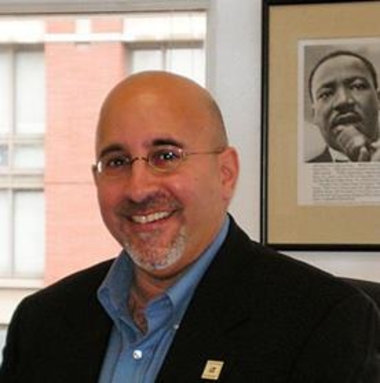Has gay marriage reached the tipping point?

Washington (AP) — One after another and in sometimes evocative language, judges appointed by Republican and Democratic presidents are declaring it's too late to turn back on the topic of same-sex marriage.
The unbroken string of state and federal court rulings in support of gay and lesbian unions takes in every region of the country, including states of the Confederacy, and brings to 26 states where same-sex couples can get married or a judge has ruled they ought to be allowed.
It also may have pushed gay marriage to a legal tipping point, where the cause has won such wide-ranging approval that it will be hard for the Supreme Court to rule against it. The court rulings and the measured response of even elected officials who oppose same-sex marriage may be especially important for justices who have worried about acting too quickly to impose same-sex marriage nationwide.
The latest ruling, in Pennsylvania, was followed quickly by word from Republican Gov. Tom Corbett that he would not appeal and instead let the decision take effect. Corbett, who opposes gay and lesbian marriage, is facing a tough campaign for re-election this year.
"We are a better people than what these laws represent, and it is time to discard them into the ash heap of history," U.S. District Judge John E. Jones III wrote last week about the Pennsylvania marriage law.
Gay marriage opponents say they expect more of a mixed record in the courts by the time the Supreme Court gets involved, and they take issue with the notion that U.S. public opinion has shifted as dramatically as many polls show.
All the rulings came after the Supreme Court decision last June that struck down part of a federal anti-gay marriage law but did not apply to bans that were then in place in roughly three dozen states. Judges, though, have had no trouble extending the high court's ruling in U.S. v. Windsor to prohibit states from discriminating against same-sex couples who want to wed.
"Judges can read the tea leaves," UCLA law professor Adam Winkler said. "They know where the Supreme Court is going. They know where society is going. Do they want their grandkids knowing they wrote an opinion stopping gay marriage?"
In some respects, the series of rulings is just the latest manifestation of the extraordinary change in attitudes about same-sex marriage.
In 1972, it took the Supreme Court one sentence to dispose of an appeal asserting a same-sex couple's constitutional right to marry. In 2003, the Massachusetts Supreme Court declared the state's marriage ban unconstitutional. When President Barack Obama decided that his administration no longer would enforce the federal Defense of Marriage Act in 2011, there were five states that allowed same-sex couples to wed. By late June, the number had jumped to 13, after the high court paved the way for gay and lesbian couples in California to get married.
No appeals court has yet weighed in, although that could change any day, and it is not clear when the high court will jump back into the same-sex marriage debate. Appeals could start arriving at the court by late summer or early fall.
"The country is ready, but the Supreme Court needs to do the tipping," said Evan Wolfson, founder and president of Freedom to Marry, a national coalition of advocacy groups working for same-gender marriage.
Gay rights advocates argue that the mushrooming list of rulings has created such an air of inevitability that, were the Supreme Court to reverse them, "a majority of the country would find that shocking," said Mary Bonauto, the director of the Civil Rights Project at Gay and Lesbian Advocates and Defenders.
On the other side of the issue, Brian Brown, president of the National Organization for Marriage, said, "You have almost every avenue of elite power saying it's inevitable, might as well give up the fight. Why would you not expect some shift? What I'm surprised by is, given the massive amount of capital and power that's been exerted on this issue, a majority of Americans still support traditional marriage."
Brown pointed to a recent Politico poll of likely voters in hotly contested congressional and Senate races, which are taking place mainly in more conservative states. That survey found 52 percent of respondents opposed to same-sex marriage. The latest Gallup poll says 55 percent of Americans support it.
Ryan Anderson, a Heritage Foundation fellow and co-author of a book defending the definition of marriage as between a man and a woman, said Supreme Court justices ultimately will have to wrestle with whether they want to impose same-sex marriage throughout the country. "Why rush in to put in a 50-state solution, when we can let the laboratories of democracy, the states, work things out?" Anderson said.
But those same arguments have been made in courtrooms across the country, with no success since the Windsor decision.
The run of courtroom victories for same-sex marriage has somewhat obscured other gay rights battles, including efforts to bar employment discrimination on the basis of sexual orientation and gender identity.
"There's a difference between having a marriage license and feeling comfortable enough to put a picture of your spouse on your desk," said Dave Montez of One Colorado, a gay-rights advocacy group.
___
by Mark Sherman and Nicholas Riccardi, Associated Press
Copyright 2014 The Associated Press. All rights reserved. This material may not be published, broadcast, rewritten or redistributed.
The Gayly – May 27, 2014 @ 11:10am





